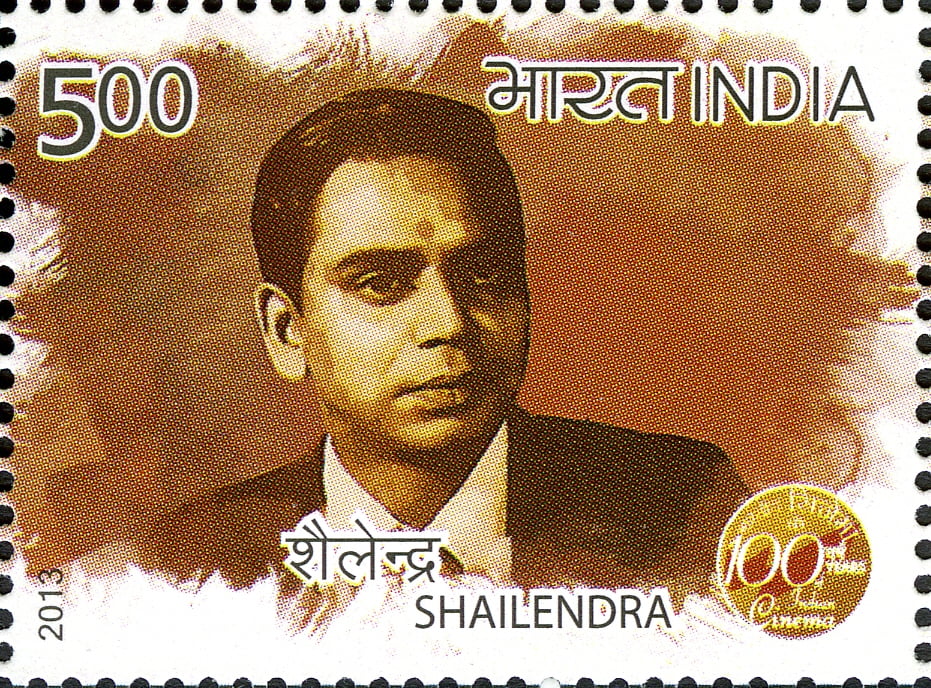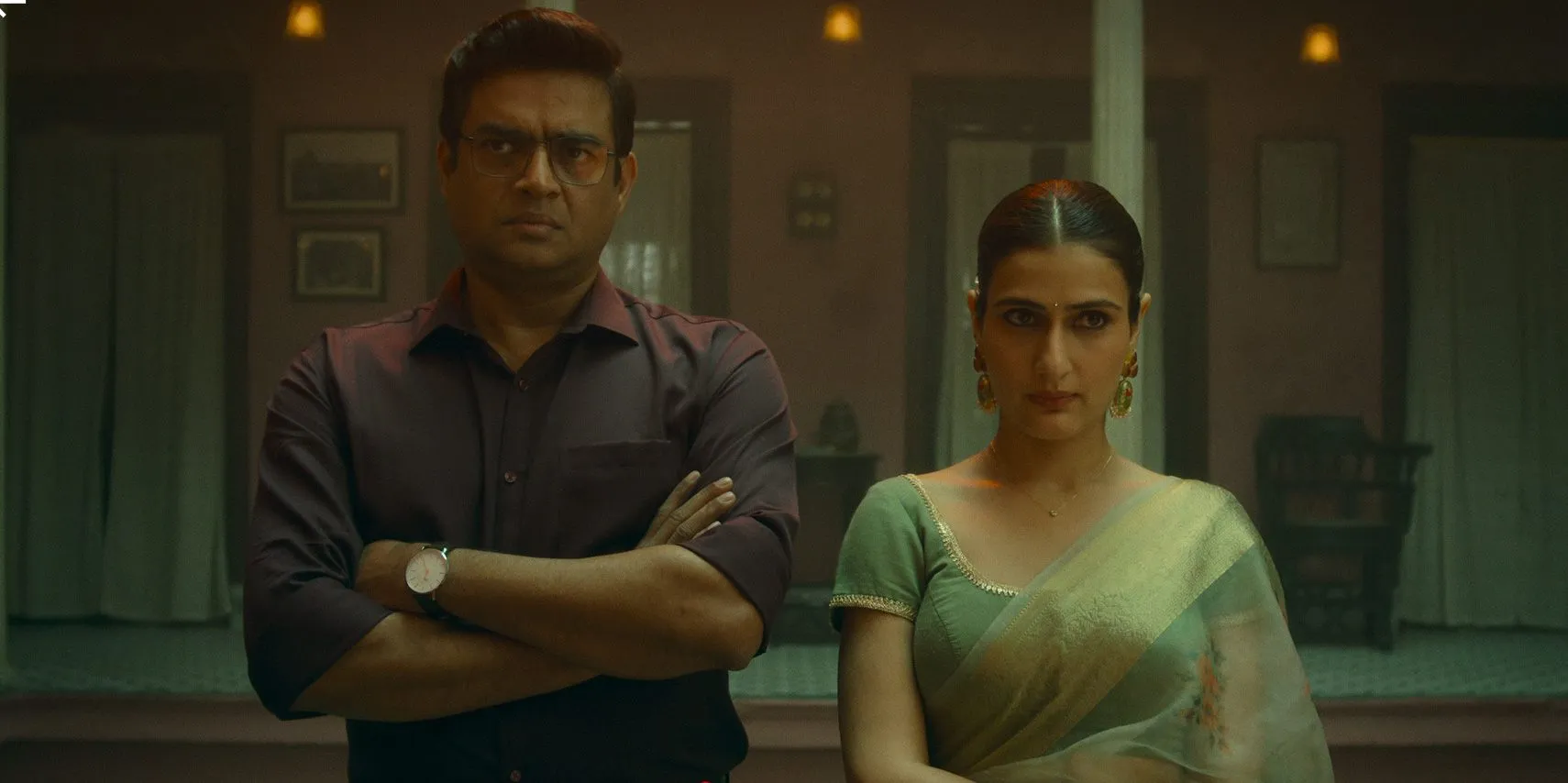Pyaar hua, ikraar hua hai
Shailendra
Pyaar se phir kyoon darrta hai dil
Kehta hai dil rasta mushkil
Maaloom nahin hai kahan manzil
The love-anthem of the nation, Raj Kapoor and Nargis holding a black umbrella on a rainy night, and a visceral image reminiscing which millions have lived their love lives—seven decades post the movie’s release, these lyrics written by Shailendra for Shree 420, are remembered and recalled to depict the challenges faced by love, and yet to revel in its undeterred spirit of commitment.
Early life and journey
Born Shankardas Kesarilal on August 30, 1921, in Rawalpindi (present-day Punjab state of Pakistan), in a Dalit (present-day Scheduled Castes) family belonging to the Dhuspur village in Bihar’s Arrah district, Shailendra had faced multitudinous challenges in life. At a young age, he had lost his mother and sister.
The village mostly comprised agricultural laborers and Shailendra’s father had shifted to Rawalpindi to work as a contractor at the military hospital. However, fate struck them and his father fell ill. As a consequence of dire penury, they left for Mathura where Shailendra’s uncle worked with the Railways. However, their tribulations kept on getting aggravated and Shailendra and his brother had to smoke beedis to kill their hunger. Against such insurmountable challenges, Shailendra managed to get educated up to the intermediate level in Mathura.
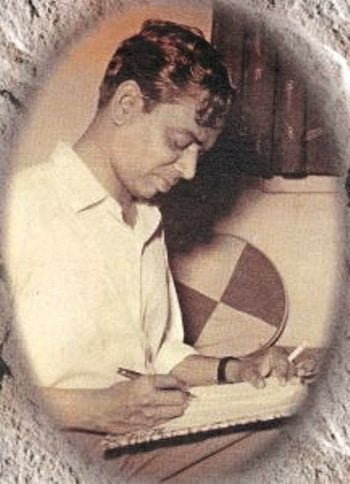
Once when he was playing hockey in Mathura, one of the oppressor-caste players had derisively taunted, “Look, now these people will also play matches.” Hockey was one of Shailendra’s passions and such a casteist remark had devastated him. However, it also invigorated his determination to shift to Bombay.
After somehow completing his education, Shailendra fulfilled his long-term goal of shifting to Bombay.
Once in Bombay, he joined as an apprentice in the Mechanical Engineering Department of Matunga Railways. Often, his colleagues saw him sitting in a corner with a pen and paper in his hand, ruminating over his thoughts and ideas.
Post the completion of his department work, Shailendra used to spend time at the office of the Progressive Writers’ Association. The office was located just across the road from the residence of Prithviraj Kapoor and every evening poets would gather there to share thoughts and have conversations. Shailendra was also an active member of the Indian People’s Theatre Association which was the cultural wing of the Communist Party of India (CPI). Here, he commenced writing poems themed on socialism and set in post-colonial India and recited in its meetings. Shailendra had created a slogan to retaliate against the exploitation faced by the oppressed at the hands of the capitalist nexus. He vocalized, “Har zor-zulm kee takkar mein, hartal hamara nara hai” (Strike is our weapon against every atrocity, every excess).
Also read: Films, Flair, And Feminism: Celebrating Smita Patil
Career and milestones
Shailendra had commenced writing in the tender years of his life. He had also gotten published in several magazines. Often, he would recite his poems at kavi sammelans in Bombay, where he would be applauded by all. During one such incident, after hearing him passionately perform “Jalta hai Punjab” at a mushaira in the 1940s, Raj Kapoor had approached him to use his poem for the film Aag (1948). However, Shailendra, because of his socialist leanings, had outrightly refused stating that his poetry was not for sale. Raj Kapoor was stupefied and impressed both. He had then made Shailendra a standing offer that he could come to Raj Kapoor at any time if he changes his mind. Later, when Shakuntala, whom Shailendra was wedded to, was pregnant and Shailendra needed money for her delivery, then he had approached Raj Kapoor and requested a loan of rupees 500. Raj Kapoor gave him the money but not as a loan. He told Shailendra that he could keep the money. However, fiery and courageous that he was, Shailendra had responded that he wanted to do something in return. That is when Raj Kapoor asked him to write two songs in his movie Barsaat (1949). Both of the songs became chartbusters and accelerated Shailendra’s career as a lyricist.
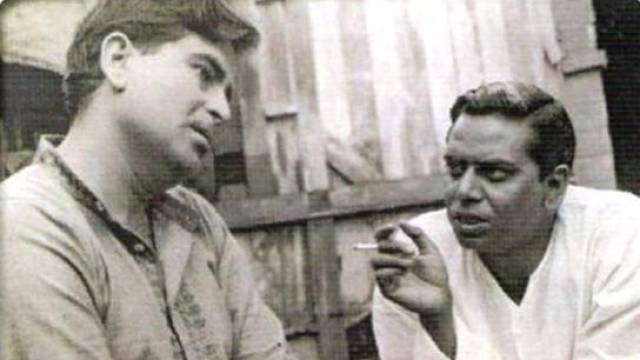
Simple and enlightening, warm and inquisitive, Shailendra’s songs moved all and stayed forever. With his minimalist poetry, colloquial language, and extensive imagery, Shailendra had brought about an innovative fervor to Hindi film music in the decades of the 1950s and 1960s with his words encapsulating cosmic truths. He wrote more than 900 songs over a career spanning 17 years among whom most were hits from the international audiences to the common masses back in India. These songs include ‘Mera joota hai Japani’ (Shree 420), ‘Dost dost na raha’ (Sangam), ‘Awara hoon’ (Awara), ‘Suhana safar aur ye mausam haseen’ (Madhumati), ‘Tere mere sapne’ (Guide), ‘Gaata rahe mera dil’ (Guide), ‘Kya se kya ho gaya’ (Guide), ‘Tu pyaar ka saagar hai’ (Seema), ‘Ajeeb dastaan hai yeh’ (Dil Apna Aur Preet Parayi), ‘Yeh mera deewanapan hai’ (Yahudi) and the mukhda of ‘Jeena Yahan, Marna Yahan’ (Mera Naam Joker).
Shailendra wrote in a language comprehensible to all. His works were an amalgamation of the poetic traditions of Hindu and Urdu. Shailendra could convey the essence of a story in few, beautiful, concrete words. Once, Raj Kapoor had taken Shailendra to meet the story writer KA Abbas. KA Abbas had narrated the story over a couple of hours while down rightly neglecting Shailendra. However, post the narration when Raj Kapoor had queried Shailendra about his comprehension of the plot, Shailendra had articulated, “Gardish mein tha, aasman ka taara tha. Awaara tha.” That is when KA Abbas realized his grave mistake and these words became the theme song of the movie Awaara. In umpteen movies such as Awaara, Barsaat, Guide, Junglee, Door Ka Raahi his theme songs have immortalized the spirit of the film. He also did cameos in two films, both times in songs, and wrote dialogues for one movie.
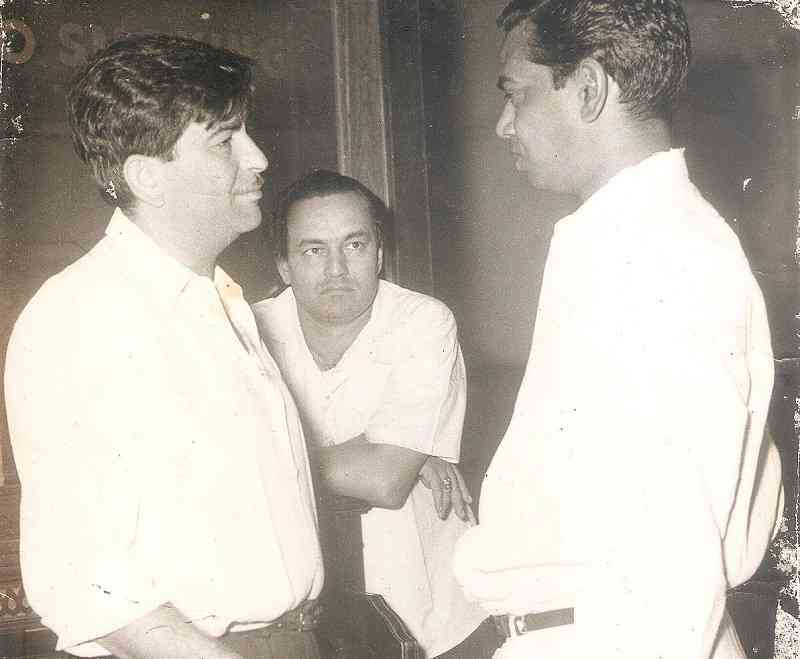
Amidst several struggles all through his life, Shailendra had maintained a simple and colorful disposition. He relished simple meals of dal, roti, and green chillies. Given his songs and Raj Kapoor’s films were exceptionally popular in Russia, Shailendra had learned Russian. He had named his bungalow Rimjhim, after the rain which he loved.
Casteist film industry, literary fields, media and administration
Shailendra was conferred with the Filmfare Award thrice. However, born into a Dalit (present-day Scheduled Castes) family, his struggles weren’t recorded enough and his achievements weren’t lauded enough by the oppressor caste media and industry.
Later, when Shailendra’s son Dinesh Shankar Shailendra had compiled a collection of Shailendra’s poems with the title Andar Ki Aag (The Fire Within), he had openly stated his father’s roots as “Bihar’s cobbler Dhursia caste”. While certain critics had encouraged this assertion, most oppressor caste writers had revolted on social media with casteist remarks and ‘opinions’.
Later, in 2015, when hired and armed goons had ransacked Shailendra’s son and daughter-in-law and looted everything including Shailendra’s awards, trophies, handwritten poems, and letters; the media which usually runs behind the silliest of incidents related to the film industry; had completely sidelined this issue. Furthermore, the administration as well as the industry didn’t bother themselves.
Failure and death
Shailendra had produced a film titled Teesri Kasam (1966) despite friends and colleagues advising against it. The film was released without adequate publicity, didn’t do well and Shailendra was devastated. He came under huge debt, was shocked by the backstabbing of those whom he used to consider close, lost faith in people, turned down assignments because he was not in a mood to write, became an alcoholic, got severely ill, and ultimately passed away on 14 December 1966.
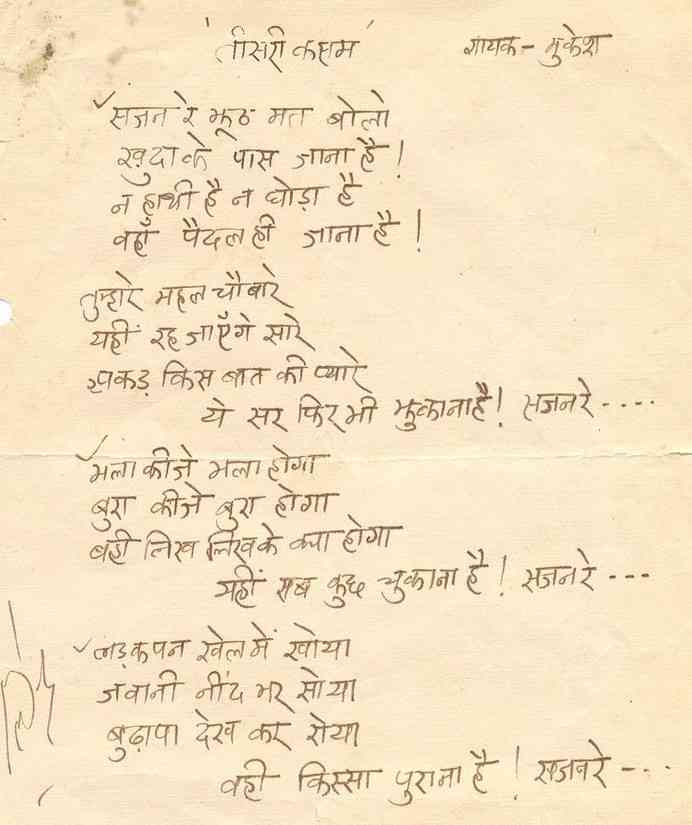
However, later, when Teesri Kasam was chosen as the official entry to the Moscow International Film Festival, won the National Film Award for Best Film (1967), and the President’s Gold Medal for best film of that year, Shailendra wasn’t around to collect the award and celebrate the success. Today, the movie is considered a classic.
Through his diverse works and his songs which connected with all, Shailendra shall forever be remembered as a writer who brought literature closer to the common masses and vice versa.
Also read: A Tribute To Gail Omvedt: The Author Who Re-Envisaged ‘Begumpura’
References
- Shailendra — the Leftist poet and Dalit genius whose lyrics define beauty of simplicity, The Print
- Shaken up by Shailendra, Forward Press
- Remembering Shailendra, the Balladeer of Hindi Cinema, The Wire.in
- Music and lyrics: How Shailendra gift-wrapped cosmic truths through his songs, Scroll.in
Featured image source: Wikipedia
About the author(s)
Ankita Apurva was born with a pen and a sickle.
